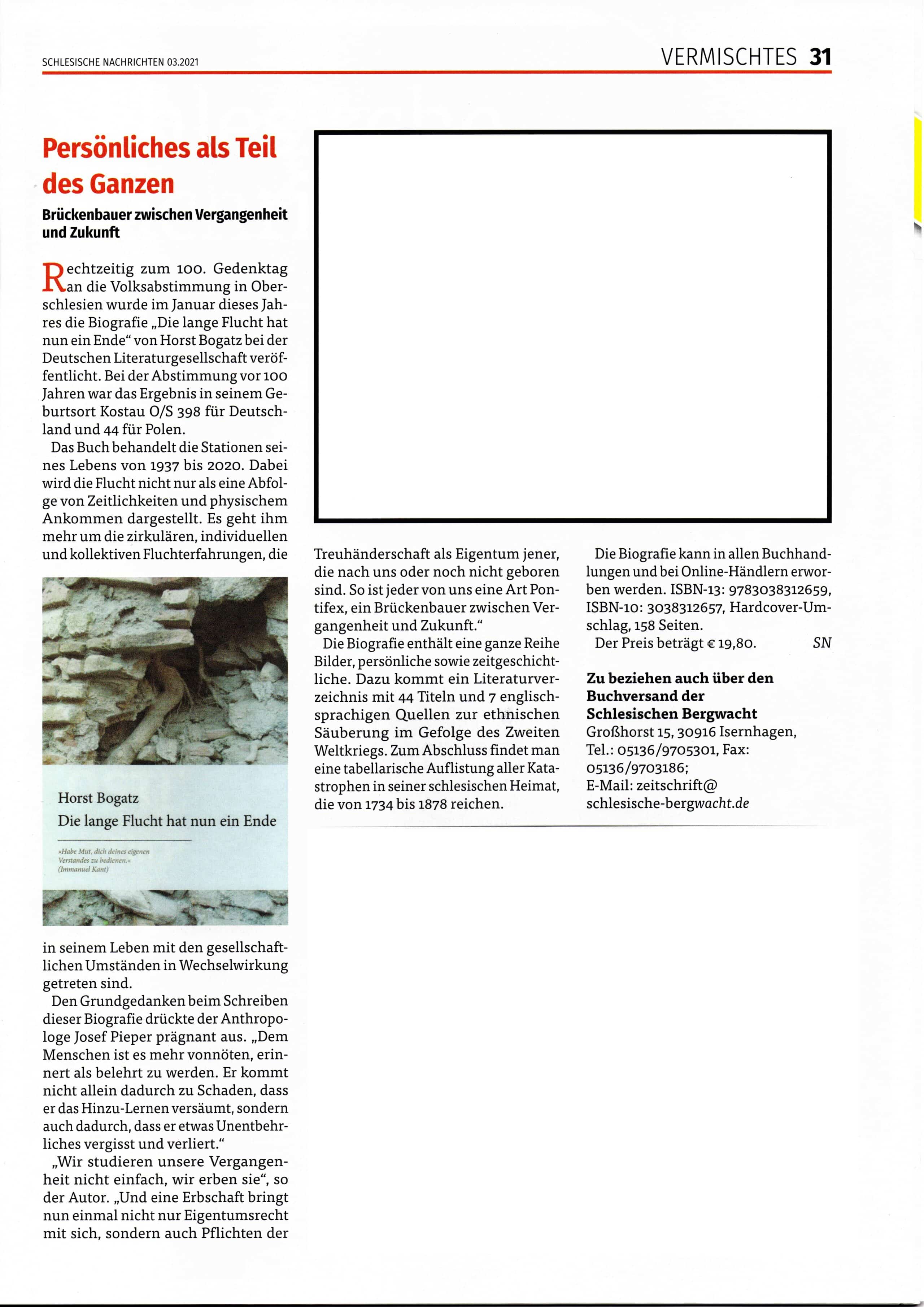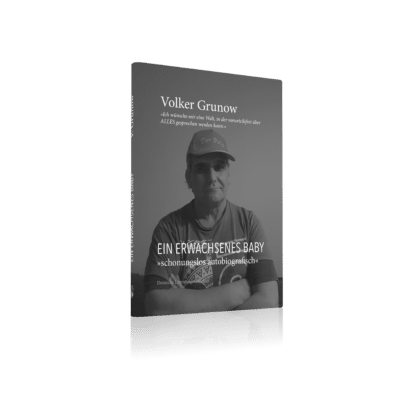Die lange Flucht hat nun ein Ende (Bogatz)
€19,80
My basic idea in writing this biography was succinctly expressed by the anthropologist Josef Pieper: "People need to be remembered more than they need to be taught. He comes to harm not only by neglecting to learn, but also by forgetting and losing something indispensable."
We do not simply study our past, we inherit it. And inheritance not only entails property rights, but also duties of trusteeship as the property of those born after us or not yet born. So each of us is a kind of pontiff, a bridge builder between the past and the future.
The long flight has now come to an end, Horst Bogatz, hardcover, 158 pages, €19.80
Book recommendation in the Schlesische Nachrichten No. 03.2021:

Book recommendation in the Celle press, July 20, 2021
The new book by Horst Bogatz: "The long flight has now come to an end"





Author unknown -
Again and again I realize that for many displaced Germans, the arrival was just as traumatic as the loss of their homeland. A long, sad chapter ..."
Horst Bogatz -
Horst Bogatz, who was born in 1937 in Kostau in the district of Kreuzburg, has only just published his autobiography entitled "Die lange Flucht hat nun ein Ende". But he had already been working on this book for several years, as you learn when reading the work.
Perhaps it is actually intended to mark the end of a long escape, perhaps it simply took time and the perspective of a person with life experience to write such personal lines, which also include his Upper Silesian homeland.
Although the author emphasizes the individual perspective of his Upper Silesian fate, he does not forget to present it in the broader context of the events of the time in Upper Silesia and beyond. He is not concerned with a mere chronology, but primarily with the elements associated with the flight and expulsion on various levels of private and social functioning in a new environment.
Horst Bogatz is the son of a baker, a "Pjekosch", as he also calls his father's profession in the Water Polish dialect. In his memoirs, he gives the reader an insight into a rather carefree childhood in the Upper Silesian countryside, whose customs and traditions, and above all the Catholic religiosity of its people, shaped him for the rest of his life. The first turning point for the boy came when his father was conscripted into the Wehrmacht, the second and decisive one in mid-January 1945 when he fled from the Red Army.
Years later, the well-educated and well-read Horst Bogatz commented on the situation in which he and his family found themselves at the time: "From now on, the life of immigrants began for us: Nowhere at home, nowhere at home. It was a fall into misery in the truest sense of the word: >>EllendeCentralizationPost Traumatic Stress Disease<< (PTSD syndrome) was only diagnosed in 1980".
In his book, Horst Bogatz not only describes the individual stages of his career in the West, starting in Lower Saxony. What makes the book even more interesting are Bogatz's comments on social developments, first in West Germany and later in reunified Germany.
During his studies, Horst Bogatz became a member of the Ring of Christian Democratic Students (RCDS) and subsequently also of the Board of Trustees of Indivisible Germany in order to uphold the idea of reunification. He recently joined the WerteUnion without belonging to a political party.
There was almost no opportunity to read this interesting book because, as Bogatz writes: "Initially, my plan was to write this retrospective primarily for our children and grandchildren. During the writing process, however, I realized more and more that I was also writing this memoir for myself. The reflections triggered are a necessary prerequisite for reconciliation with many suppressed events".
Our compatriot Horst Bogatz made the right decision in the end, however, and now his book can also be read with profit in his Upper Silesian homeland. The author has a lot to tell us.
Dr. Stefan Pioskowik
Horst Bogatz,The long flight has now come to an end, Deutsche Literaturgesellschaft, Zug 2021, 158 pages,ISBN 978-3-03831-265-9